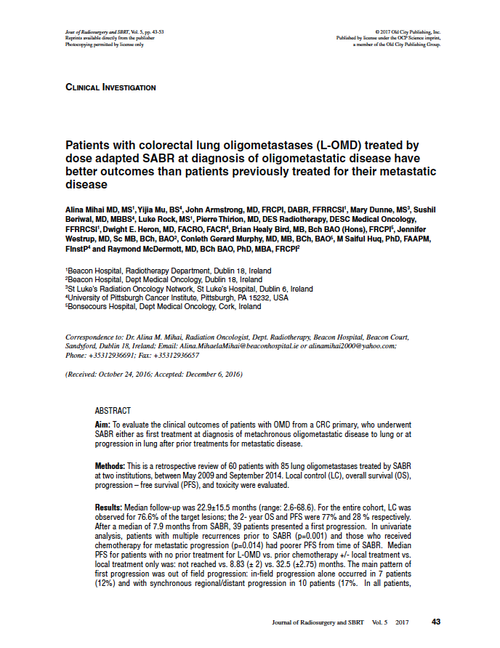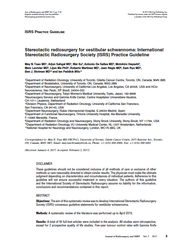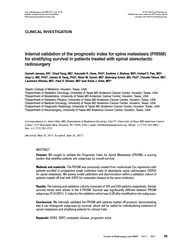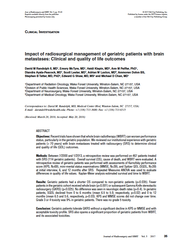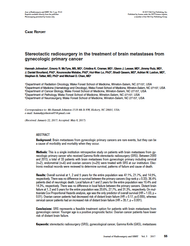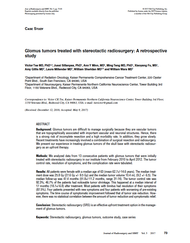- Home
- Journal Contents Downloads
- JRSBRT Downloads
- JRSBRT 5.1, p. 43-53
Product Description
Clinical Investigation
Patients with colorectal lung oligometastases (L-OMD) treated by dose adapted SABR at diagnosis of oligometastatic disease have better outcomes than patients previously treated for their metastatic disease
Alina Mihai, Yijia Mu, John Armstrong, Mary Dunne, Sushil Beriwal, Luke Rock, Pierre Thirion, Dwight E. Heron, Brian Healy Bird, Jennifer Westrup, Conleth Gerard Murphy, M Saiful Huq and Raymond McDermott
Aim: To evaluate the clinical outcomes of patients with OMD from a CRC primary, who underwent SABR either as first treatment at diagnosis of metachronous oligometastatic disease to lung or at progression in lung after prior treatments for metastatic disease.
Methods: This is a retrospective review of 60 patients with 85 lung oligometastases treated by SABR at two institutions, between May 2009 and September 2014. Local control (LC), overall survival (OS), progression – free survival (PFS), and toxicity were evaluated.
Results: Median follow-up was 22.9±15.5 months (range: 2.6-68.6). For the entire cohort, LC was observed for 76.6% of the target lesions; the 2- year OS and PFS were 77% and 28 % respectively. After a median of 7.9 months from SABR, 39 patients presented a first progression. In univariate analysis, patients with multiple recurrences prior to SABR (p=0.001) and those who received chemotherapy for metastatic progression (p=0.014) had poorer PFS from time of SABR. Median PFS for patients with no prior treatment for L-OMD vs. prior chemotherapy +/- local treatment vs. local treatment only was: not reached vs. 8.83 (± 2) vs. 32.5 (±2.75) months. The main pattern of first progression was out of field progression: in-field progression alone occurred in 7 patients (12%) and with synchronous regional/distant progression in 10 patients (17%. In all patients, chemotherapy was withheld until progression post-SABR. Treatment was well tolerated; only one patient experienced grade 3 bronchial toxicity, three months after completion of SABR.
Conclusions: SABR achieves high rates of local control with limited toxicities in patients with lung oligometastatic disease from a colorectal primary. This retrospective data indicates that patients with newly diagnosed lung oligometastatic disease may be safely treated with SABR as first treatment, with chemotherapy held in reserve. In heavily pretreated patients, SABR may allow patients a treatment break from systemic therapy, which may be beneficial both psychologically and physically. Future randomized SABR studies should evaluate sequencing of chemotherapy, the role of immunotherapies, and the quality of life of patients undergoing SABR.
Keywords: lung oligometastases, colorectal cancer, dose adapted SABR
After payment has been processed for your order of a digital copy (PDF) of this article, you will see a download link on your completed order page and also receive an email containing a download link. The links, which will enable you to download one copy of the article, will expire after 24 hours.
 Loading... Please wait...
Loading... Please wait...

